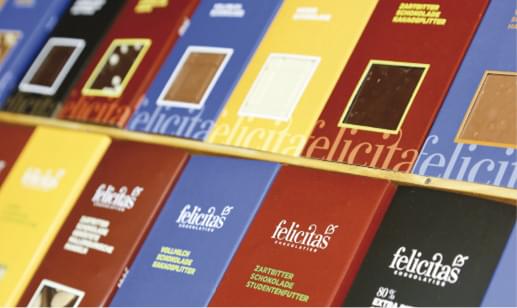Magazine: International Sweets Business Forum (part 3)
On the first day of the forum Dr Philipp Schöller, vice-president of the Zurich-seated company Barry Callebaut (the world’s biggest chocolate manufacturer) gave a lecture on the future of chocolate.
Chocolate is big business as the company’s annual sales are EUR 4 billion and there are other major manufacturers on the market such as Kraft, Mars, Nestlé, Lindt or Ferrero. According to Dr Schöller, four factors influence the future of chocolate: 1. There will not be enough cocoa. Because of increasing demand the price of cocoa will grow and Barry Callebaut started a programme that lasts until 2022 and spends CHF 40 million on increasing cocoa production and on improving cocoa farmers’ living conditions. 2. Enjoyment vs. health. Chocolate has nearly 500 ingredients from which only 200 have been identified so far. Those who regularly but moderately enjoy chocolate contribute to preserving their health. Barry Callebaut’s R&D activity aims at creating a balance between enjoyment and health with its new products. For instance Acticoa chocolate received the EFSA certification in July 2012. Acticoa is made without essences and other chemical extracts and thanks to this the product preserves more than 80 percent of the flavonol in the cocoa bean (flavonol contributes to a healthy blood circulation). 3. Sustainable cocoa production. A few years ago it was rare for chocolate products to have a quality certification but today this practice is part of the mainstream on many markets. 4. Let’s find what makes us different. Dr Alexander Hennig came with a presentation about how to attract consumers in-store and make them buy more chocolate. He told that because of growing prices last year German retail’s revenue from sweets sales was 2 percent higher in value but 2 percent lower in volume. In Germany discount stores have a big market share in sweets sales and as a result of this manufacturer brands are in strong competition with private label products. Mr Hennig called consumers’ in-store behaviour a ‘hybrid’ as generally they are looking for low prices and promotions but sometimes they purchase expensive luxury sweets too. Emotional loyalty to brands can be used by manufacturers if they understand the motivational mix of buyers: one of its components is balance (people are trying to achieve a state of safety and stability), another one is stimulation (people want adventures and are looking for new impulses), while a third component is dominance (power, status and autonomy of the individual). Dr Hennig also told that women attach greater value to the image of sweets brands than men. According to him in creating their product selection retailers need to find the right proportion of manufacturer brands and private labels, the right sizes of packaging units and to give added values e.g. regional character, related services. In his view products have to be displayed in a well-structured fashion, so that shoppers can find what they need easily and at the same time they become richer with an experience in-store.
Related news
Related news
(HU) METRO Gasztro Fesztivál a SIRHA Budapesten – Élmény, inspiráció és valódi megoldások a HoReCa-szakmának
🎧 Hallgasd a cikket: Lejátszás Szünet Folytatás Leállítás Nyelv: Auto…
Read more >






